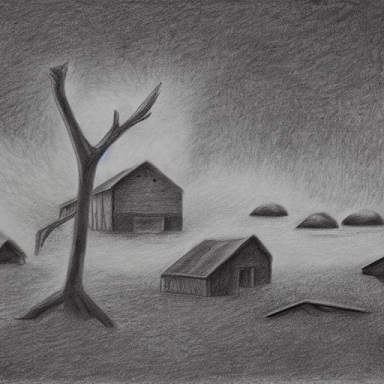Challenge Cluster 3: Climate Change and Resource Scarcity
 The continuation of climate change creates a number of challenges for international
protection, even in scenarios in which human societies are taking proactive
measures to limit global warming and mitigate climate change effects.
The continuation of climate change creates a number of challenges for international
protection, even in scenarios in which human societies are taking proactive
measures to limit global warming and mitigate climate change effects.
In particular, the collapse of food supply chains due to climate crises and extreme weather events poses a major challenge for international protection. Several scenarios describe the refugee flows directly caused by these events as well as the migration movements due to violent conflicts in connection with the shortage of food supplies. Under these conditions, it is hardly possible to distinguish between reasons for flight covered by international protection and economic reasons, that are not included.
Within the framework of the scenario process, it was disputed whether there could be a legal recognition of climate refugees within the framework of international protection within the next 10 years. Such a fundamental change would be accompanied by considerable challenges for the respective authorities, as the recognition criteria would have to be redefined and, if necessary, coordinated internationally. In addition, the number of applicants on this basis could rise very sharply in the coming years.
Noted Challenges
- Shifting rainfall patterns, extreme weather events, and other climate change effects can cause population displacement at varying scales. While some of this displacement may be temporary, displaced communities will still increase strain on resources and infrastructure where they settle. These increased pressures can eventually lead to targeted persecution and can create new sources of international protection applicants.
- Disruptions from climate change, as outlined above, can also destabilise socio-political conditions, leading to the rise of more oppressive regimes which can carry out targeted persecution. Again, this model also increases the number of asylum seekers.
- Climate change can disrupt food and water supplies, effecting any populations that are reliant on delivery systems (i.e. global markets and logistics) of these essential resources. In this manner, climate-change induced disruptions can have far reaching socio-political impacts on peoples and communities, and again lead to more authoritarian and oppressive governance regimes which use land eviction and resource expropriation to consolidate power.